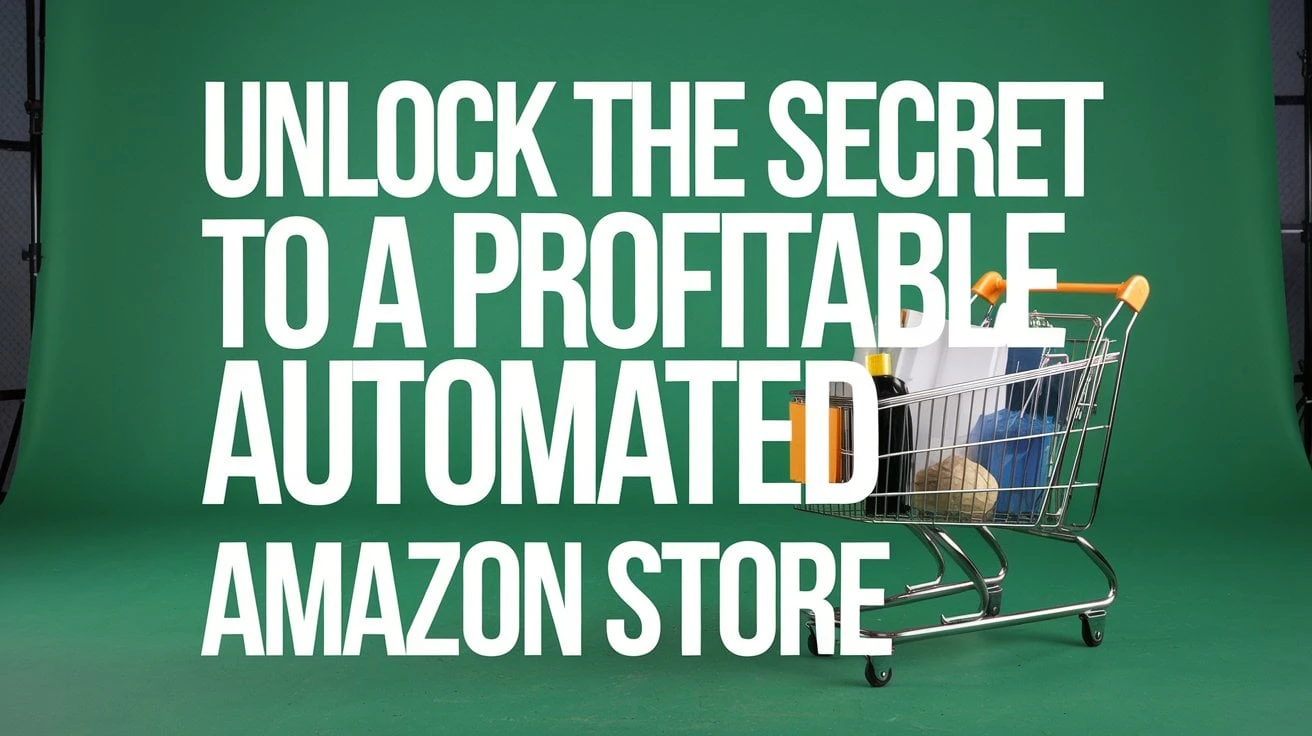Article Summary (TL;DR)
✅ Amazon has gated and ungated categories, with gated categories requiring pre-approval and additional requirements.
✅ Ungated categories include clothing, electronics accessories, home and kitchen products, health and personal care items, and more.
✅ Sellers can start selling in ungated categories immediately with a professional seller account.
✅ To sell without approval, create an Amazon seller account, identify ungated categories, source products, ensure quality, list products, provide exceptional customer service, and comply with Amazon policies.
Amazon is undoubtedly one of the largest and most popular online marketplaces in the world. Whether you’re looking to start a side hustle, launch a full-fledged e-commerce business, or simply declutter your home, Amazon provides a platform for selling a wide range of products.
While some categories and products require approval from Amazon, many others can be listed and sold without any special permissions. In this article, we will explore what you can sell on Amazon without needing approval.
Amazon’s Gated and Ungated Categories: What are they

Amazon has two types of categories: gated and ungated. Here are the differences between them:
What Can I sell on Amazon with Approval? Gated Categories:
- Require pre-approval from Amazon to sell.
- Have additional requirements, such as providing documentation or meeting certain performance metrics.
- Include categories such as automotive and Powersports, collectible coins, fine art, and grocery and gourmet food.
What Can I Sell on Amazon Without Approval? Ungated Categories:
- Do not require pre-approval from Amazon to sell.
- Are open to all sellers who have a professional seller account.
- Include categories such as clothing, shoes, and jewelry, consumer goods that are not regulated, books, music, and DVDs, home and garden products, sports and outdoors products, toys and games, beauty and personal care products, office products, pet supplies, and video games.
Sellers who want to sell in gated categories must apply for approval from Amazon and meet the additional requirements.
On the other hand, sellers can start selling in ungated categories right away without any additional approval process.
However, it’s important to note that some subcategories within these categories may still require approval, so it’s always a good idea to check Amazon’s guidelines before listing a product for sale.
Ungated List of Categories in Amazon

Amazon has certain categories and subcategories that are considered “ungated” or open, meaning sellers can list products in these categories without needing specific approval.
Keep in mind that Amazon’s policies and category restrictions may change over time, so it’s crucial to check Amazon’s Seller Central or contact Amazon Seller Support for the most up-to-date information.
Below is a list of some of the categories that were typically ungated:
- Books: This category includes both new and used books, as well as textbooks.
- Electronics Accessories: Items like phone cases, screen protectors, headphones, and chargers.
- Home and Kitchen: Products such as kitchen gadgets, small appliances, home decor, and cookware.
- Health and Personal Care: Many personal care products, supplements, and health-related items can be listed without approval.
- Clothing and Accessories: Selling clothing, shoes, jewelry, and fashion accessories is generally open to most sellers.
- Toys and Games: A wide range of toys and games can be sold, but safety standards must be followed.
- Sports and Outdoors: Products like fitness equipment, sporting goods, camping gear, and outdoor accessories.
- Automotive: Auto parts, tools, and accessories are typically open for listing.
- Pet Supplies: Items such as pet food, toys, grooming tools, and other pet-related products.
- Office Products: Office supplies, stationery, and related items.
- Video Games and Consoles: This includes video game software, hardware, and accessories.
- Beauty: Cosmetics, skincare products, and beauty accessories are typically ungated.
- Grocery and Gourmet Food: Many grocery products, including non-perishable items, are open for listing.
- Baby Products: Baby clothing, gear, toys, and other baby-related items are often ungated.
- Jewelry: Selling jewelry items, including necklaces, rings, and earrings, may not require approval.
- Handmade: Amazon Handmade is a platform for artisans and craftspeople to sell their unique handmade products.
- Custom Products: Sellers can offer customizable products without specific approval.
- Private Label Products: You can sell products under your own brand name without needing approval, but quality control is essential.
- Wholesale Products: Products sourced from wholesalers and distributors can typically be listed without approval, but authenticity and quality must be maintained.
🗣️ Pro Tip: Sellers can start selling in ungated categories right away without any additional approval process.
Gated List of Categories in Amazon
Below is a list of some gated categories and subcategories that were commonly known to require approval:
- Clothing, Shoes, and Jewelry:
- High-end fashion brands and luxury items often require brand authorization.
- Certain clothing subcategories like Watches, Fine Jewelry, and Designer Fashion Accessories may be gated.
- Electronics:
- Some subcategories of electronics, such as Cell Phones, require approval due to the potential for high-value and high-demand products.
- Beauty and Health:
- Cosmetics and skincare products may require approval, especially for certain brands.
- Dietary supplements and certain health products may also be restricted.
- Grocery and Gourmet Foods:
- Some grocery products, especially those in restricted subcategories, may require approval.
- Toys and Games:
- Collectible toys and certain types of games may need approval due to safety and authenticity concerns.
- Automotive and Powersports:
- Selling certain automotive parts or accessories may require approval to ensure quality and safety standards.
- Sports and Outdoors:
- Some subcategories, such as High-End Bikes and Exercise Machines, may require approval.
- Watches:
- Selling high-end or luxury watches may require brand authorization.
- Collectibles:
- Some collectible categories, such as Coins and Rare Stamps, may be gated due to authenticity concerns.
- Fine Art:
- Selling fine art typically requires approval to ensure the authenticity and quality of the artwork.
- Amazon Handmade:
- While handmade products can be listed in the Handmade category without approval, sellers must apply to join the Amazon Handmade program, which involves a review process.
- Amazon Renewed:
- This program is for refurbished and certified pre-owned products. Sellers must apply to participate.
- Restricted Brands:
- Certain brands have strict requirements for sellers, and authorization is often necessary to list their products.
- Restricted Products:
- Amazon may have restrictions on certain types of products, such as hazardous materials or items related to firearms.
- DVDs and Blu-ray:
- Selling DVDs and Blu-ray discs may require approval, particularly for new releases and high-value items.
- Streaming Media Players:
- Approval may be required to sell certain streaming media players and devices.
- Books:
- While most books are ungated, some collectible or rare books may require approval.
It’s essential to research the specific requirements for gated categories or subcategories, as they can vary widely.
To apply for approval in gated categories, you’ll typically need to provide documentation or meet specific criteria set by Amazon.
Always check Amazon’s Seller Central for the most current information on category gating and approval requirements, and be prepared to comply with any changes in Amazon’s policies.
How to Sell on Amazon without Approval

Selling products on Amazon without needing prior approval can be straightforward if you stick to categories and products that are generally ungated.
Here’s a step-by-step guide to get you started:
- Create an Amazon Seller Account:
- If you don’t already have an Amazon seller account, you’ll need to sign up. You can choose between an Individual or Professional account, depending on your sales volume and goals. A Professional account is recommended for most serious sellers.
- Identify Ungated Categories and Products:
- Review the list of ungated or open categories provided by Amazon. Refer to the previous section for a list of common ungated categories as of my last knowledge update in September 2021.
- Source Your Products:
- Once you’ve identified the category or categories you want to sell in, source your products. You can do this by:
- Finding suppliers and wholesalers.
- Creating your own products (private label).
- Offering handmade or custom items.
- Selling used or collectible products.
- Once you’ve identified the category or categories you want to sell in, source your products. You can do this by:
- Ensure Product Quality:
- Maintain high product quality standards to receive positive reviews and build a good reputation on Amazon. Quality products are more likely to sell well and receive positive feedback.
- Create Product Listings:
- For each product you want to sell, create a product listing on Amazon. This includes providing detailed product descriptions, high-quality images, pricing, and shipping information. Be sure to follow Amazon’s listing guidelines.
- Set Up Fulfillment:
- Decide whether you want to fulfill orders yourself (Fulfillment by Merchant or FBM) or use Amazon’s fulfillment service (Fulfillment by Amazon or FBA). FBA can be a convenient option as Amazon handles storage, packing, and shipping.
- Price Competitively:
- Research your competitors and price your products competitively. Amazon’s Buy Box often goes to sellers with competitive prices, high seller ratings, and excellent customer service.
- Market Your Products:
- Optimize your product listings for search engines (using relevant keywords) and consider advertising through Amazon’s Sponsored Products or other marketing strategies to boost visibility.
- Provide Exceptional Customer Service:
- Respond promptly to customer inquiries and address any issues or returns professionally. Good customer service can lead to positive reviews and repeat business.
- Monitor Performance Metrics:
- Keep an eye on your seller performance metrics, such as order defect rate, late shipment rate, and cancellation rate. Maintaining good metrics is essential to avoid account suspension.
- Comply with Amazon Policies:
- Familiarize yourself with Amazon’s policies, including those related to product quality, returns, and advertising. Violating Amazon’s policies can result in account suspension.
- Grow Your Business:
- As you gain experience and success on Amazon, consider expanding your product catalog or exploring additional sales channels.
Remember that while many categories are ungated, specific products or subcategories within those broader categories may have unique requirements or restrictions.
Always check Amazon’s official Seller Central for the latest information and guidelines specific to your products. Additionally, be prepared to adapt to any changes in Amazon’s policies or requirements that may occur over time.
Final Words
There’s no magic formula or shortcut to selling on Amazon without approval. However, with the right amount of dedication and a good understanding of Amazon’s policies, you’ll be on the path to success.
It’s not about finding loopholes, but about knowing the rules and playing within them. You’ve got to master the art of product selection, understand the nuances of Amazon’s marketplace, and respect its guidelines.
You’ve got to be patient, persistent, and willing to learn. You’ve got to be ready for challenges, yet stay resilient. And most importantly, you’ve got to be committed to providing quality to your customers.
Comments
Related Posts

10 Profitable Product Categories for Amazon Affiliates 2025
What you’ll learn Amazon is a favorite for experienced and…

Unlock the Secret to a Profitable Automated Amazon Store: How to Build a Hands-Free Income Stream
Ever dreamed of running a profitable Amazon business while sipping…

Master Amazon New Restricted Keywords: A Seller’s Guide to Success
Changes to Amazon’s restricted keywords list have taken a lot…







Leave a Reply